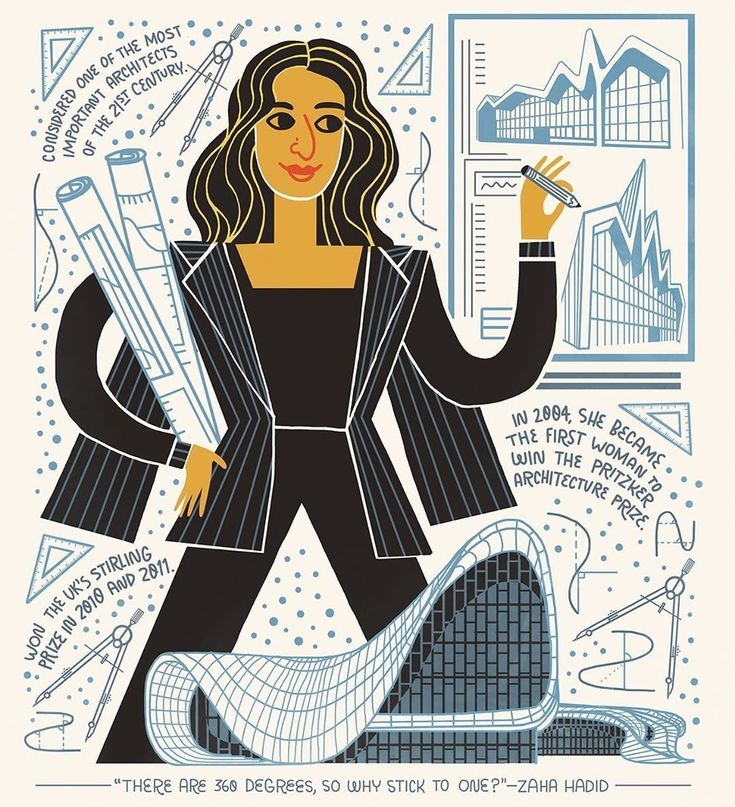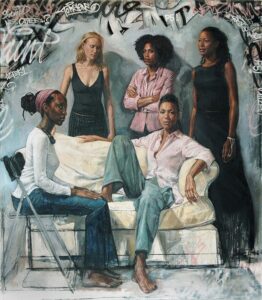
A few weeks ago, I read about an author named Muriel Schulz and her perspective on the semantic derogation of women. She analyses how, over many generations, woman-related words have acquired negative sexual connotations that were once nice and “gentlemanly.”
Language molds according to the generation of people who use it and how they use it, and for several decades’ language has been against women. A woman in the workforce? “She’s power-hungry,” an older woman– “hag” or even words like “tramp” or “mistress,” which is used to describe women if they have sex too much. The funny part is, however, there are no male counterparts to these terms, which overtly shows how mankind has singlehandedly decided to corner women of all ages/races/backgrounds.
This absurd villainization of women stems from men’s fear of feeling inferior to powerful women. To them, women should remain commodities of male aggrandizement, to an imprisoning socioeconomic structure (in our case, male supremacy) will always correspond to a system of relegation.
The world shifted a little when Oprah’s interview with Meghan Markle was disclosed to the public eye – opening up about the racism she faced in the royal family and how many ‘royals’ were against giving her the title. The conjecture surrounding if she could “fit in” with her ghetto background or if she’s capable of the royal duties with nothing but an acting experience. This goes to show how easily we can bend the laws surrounding a woman of color when nobody inherently questioned Kate Middleton’s credibility. Likewise, when the recent uproar surrounding our very own college student – Rashmi Samant, gained popularity for becoming the first Indian woman president of the Oxford students’ union. The cheers were quickly nulled when news of her resigning due to various allegations against her from the past. It’s interesting how there was over-speculation when a brown woman received authority but applause for undeserving male counterparts. I refuse to believe that the only people morally pure enough to accomplish major policy advances in the future for women are men.
Women in power have to constantly be part of a war, trying to prove to everybody that they are competent enough for something they have accomplished. And oftentimes, in this fight, they get pressed up against a metaphorical glass like an orphan child in a Dickensian novel – getting subjected to constant skepticism, micro-abrasions and rarely taken seriously, while at the same time work harder, better and longer to reap even close to the same rewards as men. On a rare occasion when a woman’s success does get acknowledged, it’s also likely to be undercut by some implication that chance played a role. It is known as the – “he’s skilled, she’s lucky” phenomenon.
Decades of negative lingual connotations surrounding the female sex and society’s ingrained biases that support inaccurate perceptions about women being innately inferior contributes to the present fallacies.
Women, unlike men, are rarely perceived to be both competent and likable. That’s why women are penalized when they behave in ways that violate gender norms. Our gender stereotypes show that women should be kind, nurturing, helpful, and deferential. At the same time, traditionally, men are expected to be decisive, competent, assertive, and strong. Hence, the dilemma for women is – the qualities which we value in leadership, such as assertiveness and decisiveness, go against societal norms of what it is to be a “likable” woman. So as long as society continues to associate leadership with masculine traits, female leaders in any sector will be judged more harshly even when they outperform male counterparts.
In the last several years, there has been a paradigm shift that has been a long time coming, where there’s a global rise in women seeking more leadership and frontline roles. Although we keep saying phrases like ‘we’ve come a long way’ – we do mean it because being hopeful in the future generations can help us tide over this ongoing plight. I am hopeful, as a woman, to belong to a world where half our countries and half our companies were run by women. It’s the only vision of the world that matters. Rightly so.
Written by Ananya Rudra for MTTN
Edited by Asma Abidin for MTTN
Featured Image by Rachel Ignotofsky
Artwork by Tim Okamura

Leave a Reply
You must be logged in to post a comment.